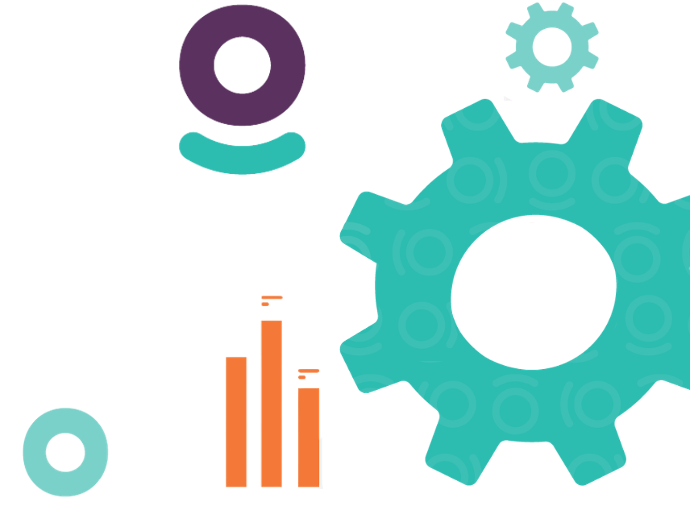Find
the Best CRM for Your Business - CRM Systems NZ
As a leading provider of CRM systems in NZ, we know a great solution will enable you to nurture and grow your customer base.
Better serve your customers
The right CRM solution will empower your sales and marketing teams to create personalised buying journeys for customers and prospects. Organise, track, and sell with ease by providing your sales team with timely insights to help close deals at the perfect moment. That is the power of a great CRM system.
Improve customer relationships and grow your business with CRM tools for your whole team.
Importance of CRM for modern NZ businesses
In today's data-rich business environment, cloud-based CRM has become a vital tool for ensuring customer and prospect data is accessible, accurate, and up-to-date. From the days of simply contacting customers and maintaining lists, CRM offers so much more!
Manage all aspects of sales and marketing in one place, saving you time on countless tasks every day.

#1 Open Source CRM 2023
Easy to learn and simple to deploy.
Named by Forbes as the #1 Open Source CRM, 2023 Odoo CRM is the perfect tool for providing world class customer relationship management.
With over 7 million users worldwide, Odoo is the affordable, yet scalable CRM software NZ businesses can rely on. Accessible and easy to use for SME’s just as it is for large enterprises.
Best free CRM software
Looking into your cloud-based CRM options?
Odoo is the free CRM software NZ enterprises can download and experience today.
While the free CRM app is a great start, implementing an integrated CRM system for a growing enterprise will require the help of an expert. So, if you like what you see in Odoo, circle back to our experts for a personalised demo where you can experience the full power of an integrated open-source CRM system.

Commonly Asked Questions
A CRM system can benefit any type of business that knows the value of keeping their customer happy. At Wedoo, we've helped all of the following business types implement a CRM system that centralises customer data and activities to provide better outcomes for the business and their customers:
-
E-commerce businesses: A good CRM system will integrate seamlessly with the eCommerce platform to help manage customer data, purchase history, and preferences to create personalised experiences.
-
Service-based businesses: A CRM will track customer interactions, set reminders for follow-ups, and streamline appointment scheduling.
-
B2B companies: Manage customer accounts, track sales opportunities, and provide sales reps with valuable insights.
-
Non-profits: Manage donor and volunteer data, track donations and interactions, and improve communication efforts.
-
Small businesses: A CRM system can help manage customer data, track sales leads, and automate repetitive tasks to save time and increase efficiency.
In summary, any business that has customers or clients can benefit from a CRM system to manage their relationships and improve their overall customer experience.
CRM stands for Customer Relationships Management. CRM includes keeping track of customer contact information, interaction history, and other data points that can help the company better serve its customers.
A CRM system is a software application that helps businesses manage customer relationships and interactions. It typically includes features for customer contact management, marketing automation, sales automation, and customer service.
A CRM system can help businesses collect data about their customers, such as contact information, purchase history, and demographics. This data can then be used to create targeted marketing campaigns, provide personalised customer service, and make more informed business decisions. Today a CRM system is integral to building loyalty and delivering a service level that customers have come to expect.
Some of the most commonly used CRM systems include Salesforce, Microsoft Dynamics, and Oracle CRM. Their popularity reflects their long-standing position in the market. However, there are many others, such as Zoho CRM, Insightly, and Bitrix24. Depending on your business goals, business size and complexity, the right CRM solution for you may differ from another.
Odoo is the #1 open source CRM system in the world and the popularity of the software is booming with SME's in particular due to it's affordability and ease of use. With over 7 million Odoo users worldwide, Odoo is just beginning to grow in popularity within NZ. You really have to see it to believe how good it is. Be sure to request a demo for our experienced team!
A good CRM software first and foremost must meet the needs of your business. There are many factors to consider when choosing the best CRM software. The most important thing is to find a system that is easy to use and meets the specific needs of your company. Some other important factors to consider include:
-The features offered
-The price of the software
-How easy it is to customise the software to meet your needs
-The quality of customer support offered by the company
Customer Relationship Management is the process of managing and optimising customer interactions with a company in order to improve customer retention and drive sales growth. This can be done through a variety of methods, such as email marketing, social media outreach, or even old-fashioned telephone calls.
The ultimate goal of Customer Relationship Management is to develop a deeper understanding of each individual customer in order to provide a more personalised service that meets their needs and drives them towards becoming repeat customers. By collecting data on customer interactions and behaviors, you can better understand what customers want and need, and how you can improve the customer experience to keep them coming back for more.
There are many challenges that come with managing customer relationships. First and foremost, it can be difficult to keep track of all your customers and their individual needs. It’s important to maintain regular communication with them, but this can be tricky to do if you have a lot of customers. In addition, you need to make sure that you’re providing them with the best possible service and meeting their expectations. If any problems arise, you need to be able to resolve them quickly and efficiently. It’s also important to keep up-to-date with the latest industry trends and developments, so that you can offer your customers the most current products and services.
A major challenge in the use of a CRM system is ensuring data quality. Software is only as good as the data that is entered into it. To get the most out of your CRM, you need to ensure that customer data is accurate and complete. This can be a challenge if your business relies on manual processes to store and update customer information. This is where an experienced software solution provider is crucial to the success of your CRM implementation.
No, xero cannot be used as a CRM. While it is a great small business accounting software, it does not have the features needed to effectively manage customer relationships.
Some of the key features that are essential for a CRM include contact management, lead tracking, opportunity management, and sales pipeline reporting. Without these features, xero cannot be used as a CRM.
There are three primary types of CRM tools: operational, analytical, and collaborative.
Operational CRM tools focus on automating and managing processes like sales, marketing, and customer service. Analytical CRM tools collect data from various channels (e.g., social media, websites, phone calls) and use it to generate insights that help improve marketing campaigns and target new customers. Collaborative CRM tools provide a platform for interactions between customers and employees (e.g., chat, video conferencing).
The type of CRM tools you need depends on the specific needs of your business.
CRM integration is vital for linking the front office (customer-facing side of the business) with the back office (where services are generated). A streamlined flow of information keeps the business running smoothly and in turn, keeps customers happy.
The benefits of CRM integration include better communication, greater customer care, greater marketing efficacy, and sales growth. All of these benefits result from access to accurate, timely information, capacity for automation and the potential to improve employee awareness of accurate customer data.
Some common examples of CRM integration include:
- CRM integration with Ecommerce: By integrating your CRM system with your eCommerce platform, the entire sales operation can be managed by recording and tracking data on existing customers and leads across many channels. The CRM allows for all data to be easily managed in one platform, informing marketing, sales, and customer service teams with the information they need to move prospects down the funnel or nurture existing customers.
- CRM integration with Marketing: Effective marketing is driven by customer insights. As such, many businesses rely on CRM integration with Marketing Automation software to integrate customer data across marketing channels (mobile, email, social media). CRM integration with Marketing connects customer lifecycle information and helps funnel leads toward the right channel to close a sale.
- Integrating CRM with Customer Service: By integrating CRM with customer service software (like helpdesk or field service) information for assistance, tickets, cases, warranties, repairs/maintenance, and returns can be managed and cross referenced more easily. The share of accurate and timely information across the service teams can allow on-site technicians to have access to customer call data and support information. All of this contributes to providing customer service that gives businesses a real competitive edge.
Let's start the conversation
If you're not sure where to start, start by dropping us your email. We'll be in touch.